What is a Russian oligarch and why are they being sanctioned?
Hannah Towey,Linette Lopez

Russian President Vladimir Putin at the Grand Kremlin Palace in Moscow, Russia.Mikhail Svetlov/Getty Images
- Targeting wealthy oligarchs is a key part of the US and EU sanctions strategy against Russia.
- But what classifies someone as a "Russian oligarch" besides being extremely wealthy?
The word "oligarch" has been used interchangeably with billionaire in recent days, as wealthy Russian elites continue to be targeted by US and EU sanctions.
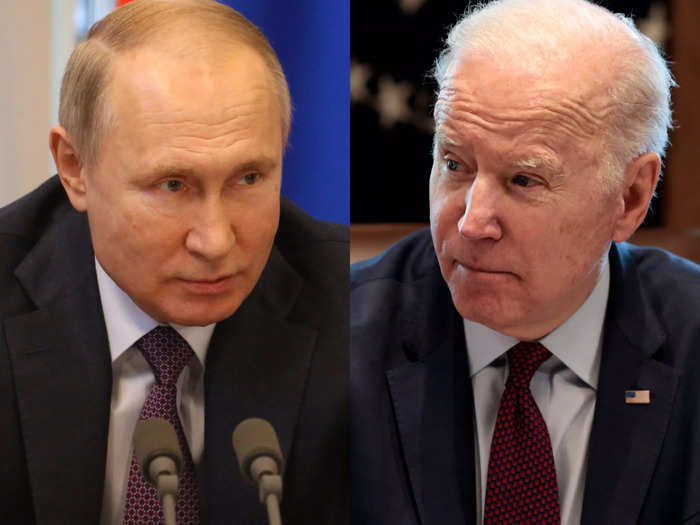
Mikhail Svetlov/Getty Images, Anna Moneymaker/Getty Images
But what does it really mean to be a Russian oligarch, besides having enough money to own a super-yacht?
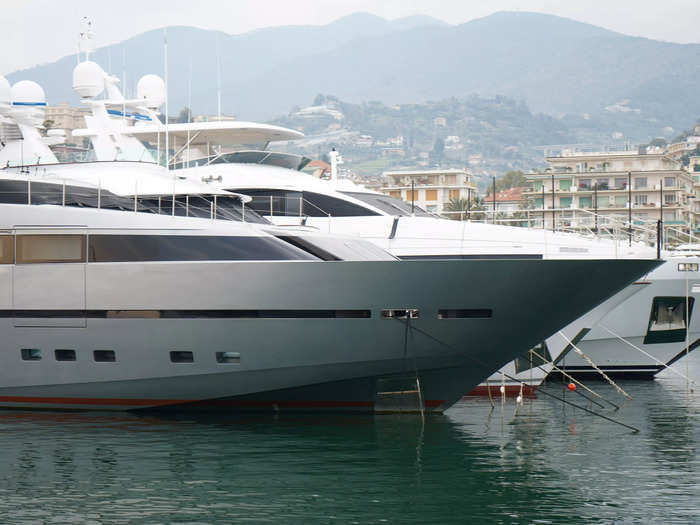
The super-yacht "Lena" belonging to oligarch, Gennady Timchenko. ANDREA BERNARDI/AFP via Getty Images.
Generally, an oligarch is defined as a ruling member of an "oligarchy," or a small group of people with power.
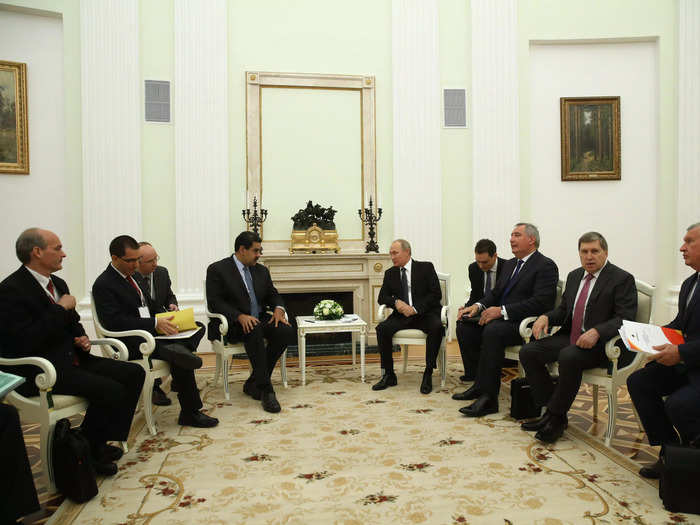
Russian Energy Week in Moscow Mikhail Svetlov/Getty Images
But in Russian politics, the term first came about in the 1990s to describe a dozen or so powerful men who amassed immense wealth following the collapse of the Soviet Union.
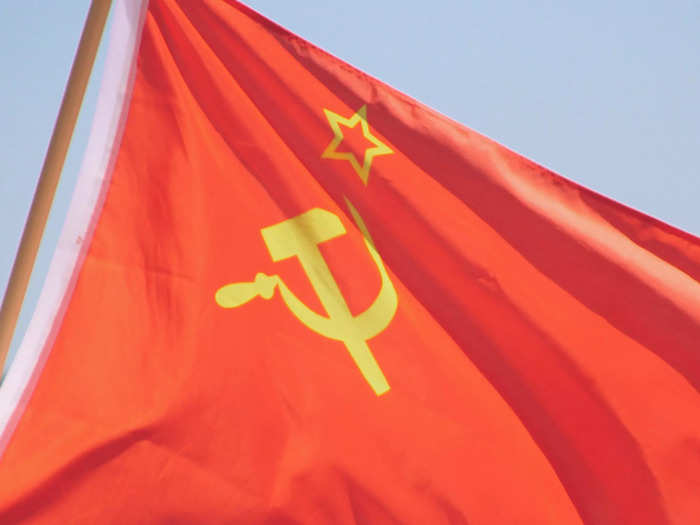
Soviet Union flag saulgranda/Getty Images
Here's how that happened:
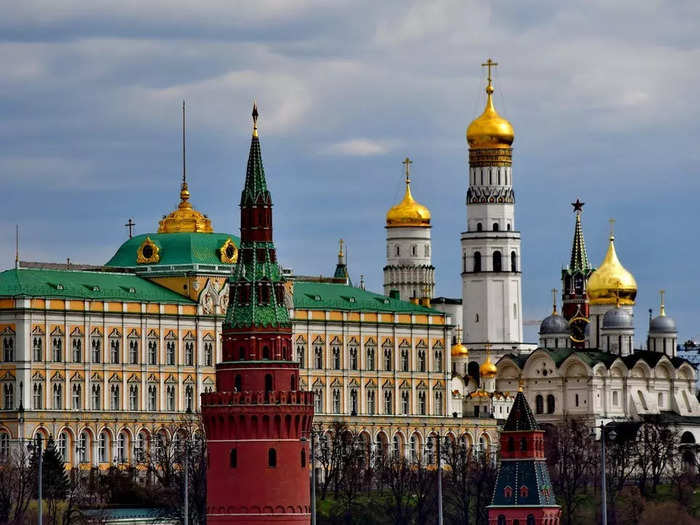
The Kremlin Palace in Moscow, Russia. Jarung H/Shutterstock
After the fall of the USSR, the Russian economy was in disarray. The government, led by President Boris Yeltsin at the time, wanted to privatize badly managed state-owned companies in an effort to move towards capitalism.
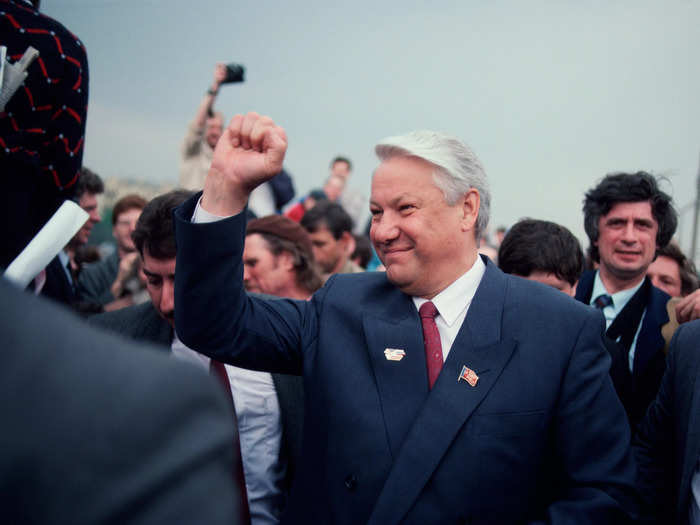
Boris Yeltsin, the first president of the Russian Federation. Shepard Sherbell/Corbis via Getty Images
The plan to achieve this was called "loans for shares," an idea introduced by Onexim Bank in 1994.
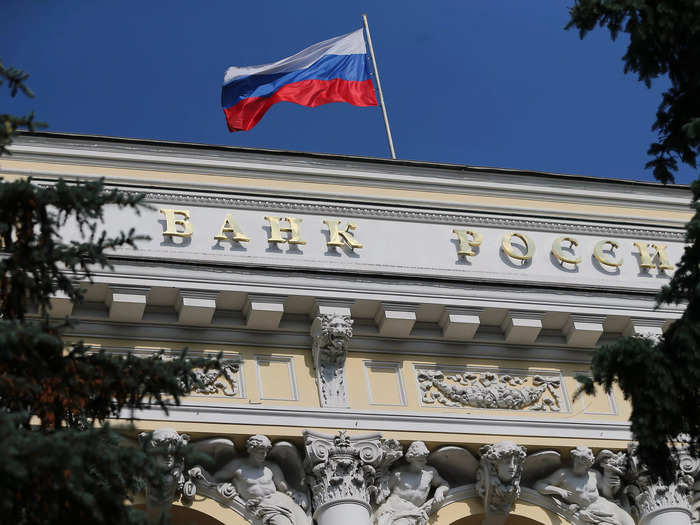
Russia's central bank Gavriil Grigorov\TASS via Getty Images
Russian banks lent the government money in exchange for temporary stakes in state-owned companies, which were sold to investors for dirt-cheap during rigged auctions. If the government defaulted on its loan, the banks got to keep their stakes.
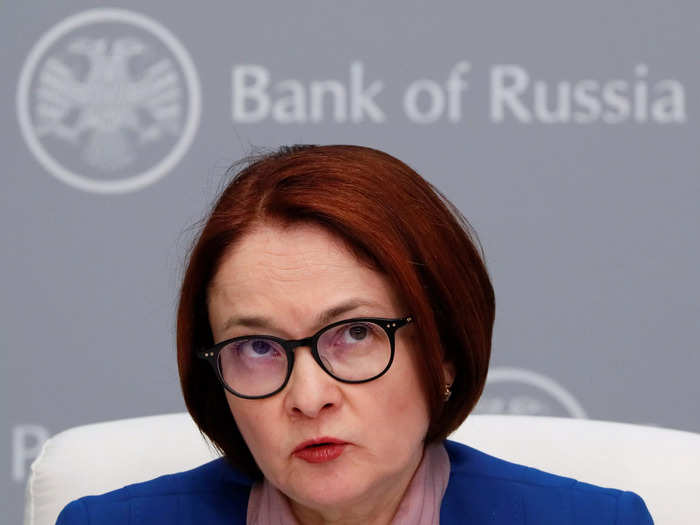
Elvira Nabiullina is the governor of Russia's central bank. Shamil Zhumatov/Reuters
Spoiler alert: they did. This made investors like Vladimir Potanin, Oneksim Bank's then-president (who is now the richest man in Russia), become wealthy beyond belief.
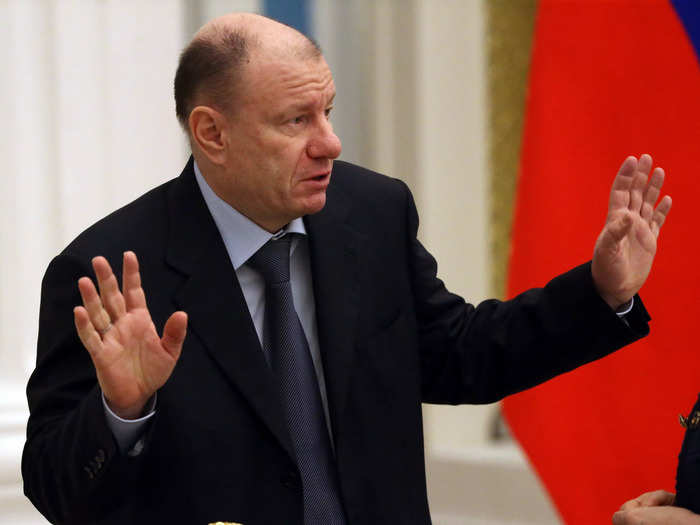
Russian billionaire and busines man Vladimir Potanin. Mikhail Svetlov/Getty Images
Oligarchs like Potanin maintained massive political and financial influence before Putin came to power in 1999. The most influential "Yeltsin-era" oligarchs include the now-sanctioned businessmen, Mikhail Fridman and Pyotr Aven.
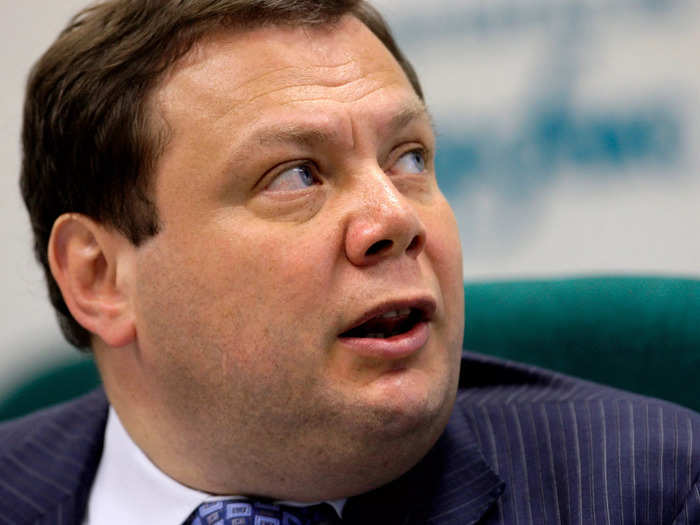
AP/Alexander Zemlianichenko
Then Putin became president and vowed to rid the government of corruption. This strong man stance led to the arrest or exile of oligarchs like Mikhail Khodorkovsky and Leonid Nevzlin.
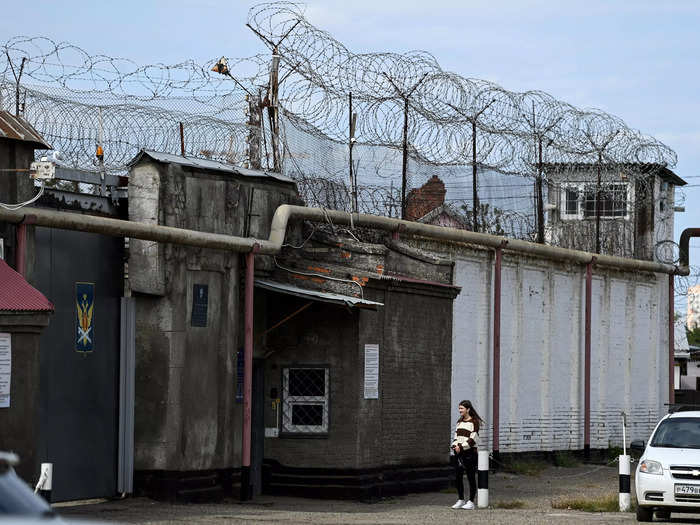
Detention Center no. 1, where Andrei Pivovarov — former head of the exiled Kremlin critic Mikhail Khodorkovsky's pro-democracy group Open Russia — is being held after his 2021 arrest. KIRILL KUDRYAVTSEV/AFP via Getty Images
The elites who remained were forced to support Putin's government. Meanwhile, a new generation of oligarchs began amassing wealth through personal relationships with the Putin administration.
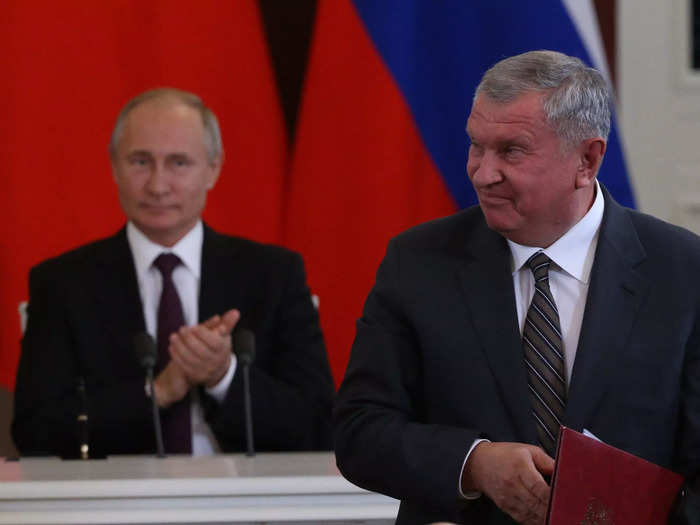
Russian President Vladimir Putin (L) looks on Rosneft President Igor Sechin (R) during Russian-Chinese talks at the Grand Kremlin Palace in Moscow. Mikhail Svetlov/Getty Images
In many cases, government officials — or their children — took control of state-backed companies. For example, the CEO of Russia's diamond mining giant Alrosa is the son of Sergei Ivanov, a presidential representative.
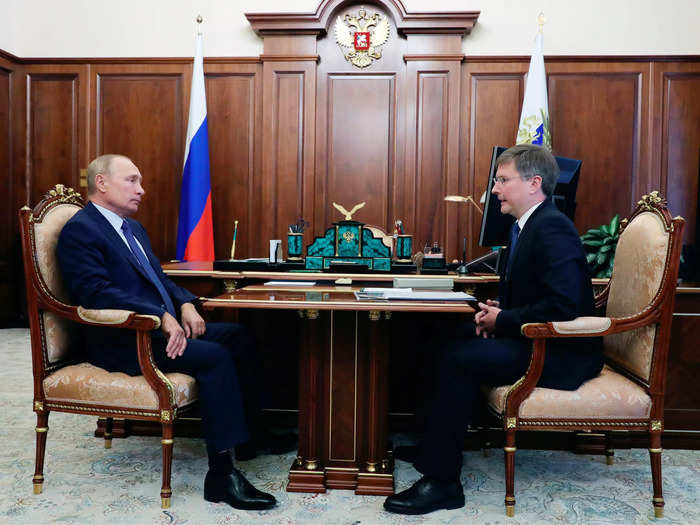
Russia's President Vladimir Putin (L) meets with Sergei Ivanov, CEO of the Alrosa diamond mining company, at the Moscow Kremlin. Mikhail Klimentyev\TASS via Getty Images
Some of the most well-known "Putin-era oligarchs" include Roman Abramovich, Oleg Deripaska, and Alisher Usmanov.
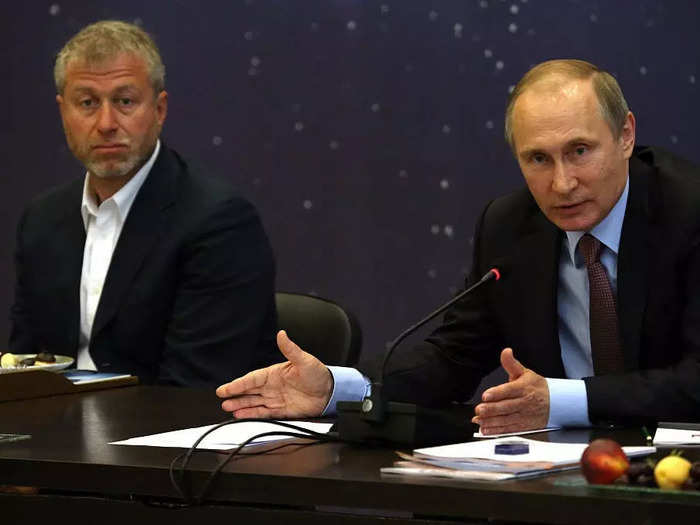
Russian President Vladimir Putin (R) speaks as billionaire and businessman Roman Abramovich (L) looks on during a meeting with top businessmen Mikhail Svetlov/Getty Images
By sanctioning Russia's oligarchs, the US and its allies are attempting to cut off "Putin's wallet." Ultimately, the hope is that a disgruntled elite class might put pressure on Putin to end the war.
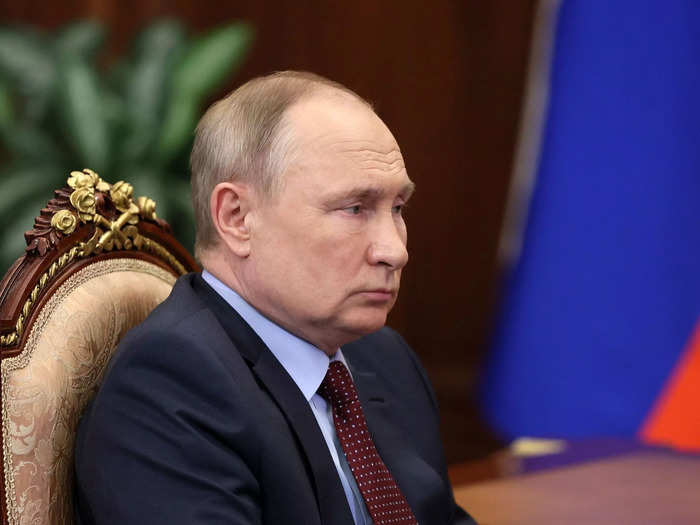
Russian President Vladimir Putin. MIKHAIL KLIMENTYEV/SPUTNIK/AFP via Getty Images
So far, a handful of sanctioned oligarchs have called for peace in Ukraine as their Western assets come under seizure.
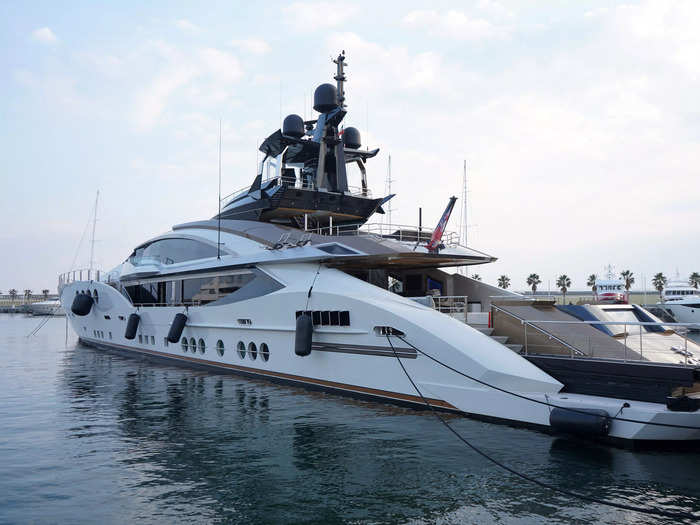
Russian oligarch Alexei Mordashov's super-yacht, "Lady M" was seized by Italian authorities on March 5. ANDREA BERNARDI/AFP via Getty Images.
But how much influence the oligarchs actually wield over military decisions is up for debate. Some experts argue that they're incapable of something as drastic as a coup.
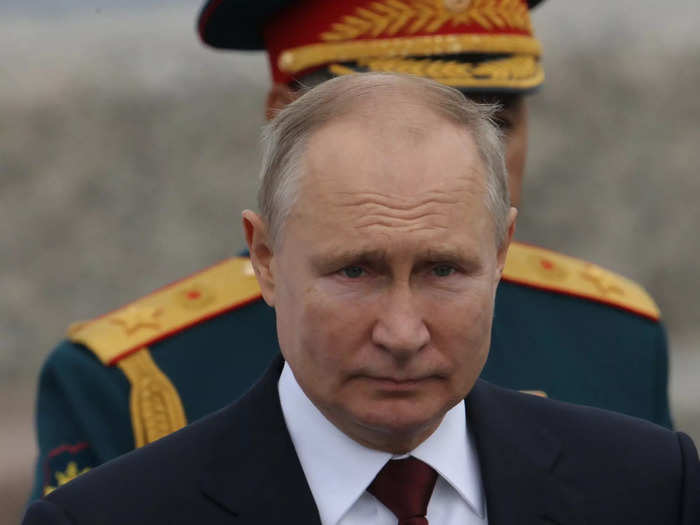
Russian President Vladimir Putin attended a military parade on July 25, 2021, in Saint Petersburg, Russia. Mikhail Svetlov/Getty Images
Source: Washington Post
In the meantime, the sanctioned oligarch list is growing every day. In the words of President Biden: "We are joining with our European allies to find and seize your yachts, your luxury apartments, your private jets. We are coming for your ill-begotten gains."
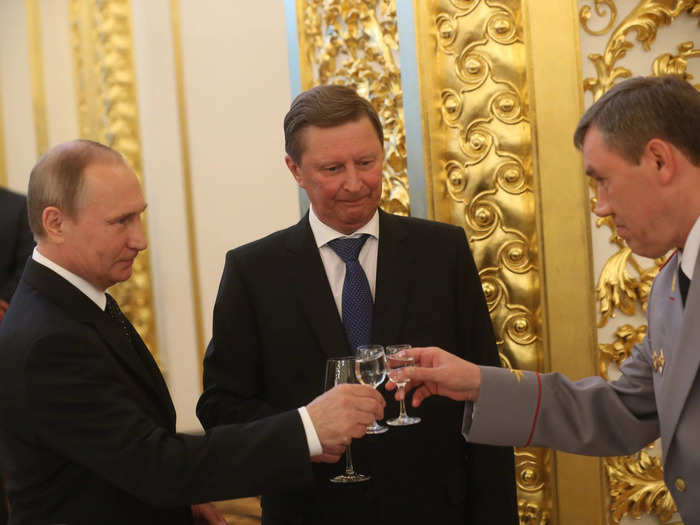
Russian President Vladimir Putin (L) toasts holding a glass of vodka with Deputy Defense Minister Valery Gerasimov (R) and Presidential Administration Chief of Staff Sergei Ivanov (C). Mikhail Svetlov/Getty Images
READ MORE ARTICLES ON
Popular Right Now
Popular Keywords
Advertisement